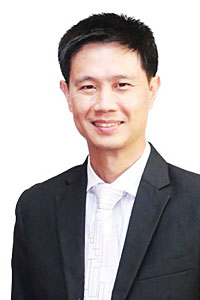On May 22, 2014 then army commander-in-chief Gen Prayut Chan-o-cha led a group of patriotic generals to oust the democratically-elected but allegedly-corrupt government of prime minister Yingluck Shinawatra, tearing up the previous junta-commissioned 2007 constitution.

After some 26 months under the military regime, Thai society has paid a high price for peace and order. Post Graphics
The putsch was meant to avert bloody clashes between Thais, to end the alleged rampant corruption, as well as to instal a new political architecture that will promote long-term sustainable economic growth and prevent crooked politicians from running the country, particularly the military's enemy No.1: Thaksin Shinawatra.
Twenty-six months have passed; have we achieved all those goals? The short answer is: Not really. A fairer answer is law and order has somewhat returned and Gen Prayut and his military teams of the National Council for Peace and Order (NCPO) are striving to achieve others.
But on the other hand, the question is: What price is being paid for the junta to achieve peace and stability in the very deeply divided Thai society?
At least 85 people have been charged with unlawful political gathering and 67 more people have been charged with the lese majeste law in the first 24 months after the coup, according to the rights advocacy group, Internet Dialogue on Law Reform, known as iLaw.
Since June this year, it is reported that at least 86 people have been investigated or charged under the government clampdown on dissenting voices ahead of the Aug 7 referendum, according to a United Nations statement.
A senior UN official on human rights on Tuesday condemned the "alarmingly high number" of arrests and charges over public and social media expression brought under military orders and the Constitution Referendum Act in Thailand.
David Kaye, UN Special Rapporteur on freedom of opinion and expression, said he was "seriously concerned that military orders and the Constitutional Referendum Act restrict expression and access to information about the draft constitution".
The most critical point is Section 61 of the 2016 Referendum Act, which criminalises anyone who "disseminates text, pictures or sounds that are inconsistent with the truth or in a violent, aggressive, rude, inciting or threatening manner aimed at preventing a voter from casting a ballot or vote in any direction or abstain from voting".
As Mr Kaye puts it: "The idea of a referendum is to allow for full debate followed by a public vote, and particularly where the subject is of extraordinary public interest, a wide range of opinions should be encouraged, freely expressed, and open to rigorous debate."
This rigid provision has prevented an open and free discussion on the merits of the 279-section draft charter, which is crucial to the achievement of the ruling generals' objective of having a stable democracy.
Two weeks earlier in a similar plea, ambassadors of Canada, the US and all 20 European Union member states with a diplomatic presence in Thailand wrote an open letter to the Thai government calling for open dialogue on the draft charter.
"We urge the government to allow the Thai people to engage in open dialogue, forge common links, and find the consensus needed to build a strong and sustainable future for all," the 448-word letter to the Bangkok Post stated.
Did anyone in the government really care?
Foreign Ministry spokesman Sek Wannamethee reacted to the letter by saying the ministry is open to opinions and has been engaged with diplomats in Bangkok to provide information on political developments in Thailand, but public order and social harmony are key for the government to be able to see the roadmap through to the end.
"Ultimately, the right balance between freedom of expression and public order is a crucial ingredient for a smooth transition towards genuine and sustainable democracy," he said in a statement.
What did that mean in action? Not much.
The ruling generals shrugged off the calls by "foreigners" while the Election Commission held recorded, edited TV debates, which will be aired daily.
EC officials and the charter writers are teaming up to "educate" voters on the merits of this draft. The chief architect of the charter, Meechai Ruchupan, told business elites on Tuesday that the rejection of the draft constitution at the Aug 7 referendum will lead to political instability and spur anti-coup elements to seek the ouster of the prime minister.
But for many opponents of the draft, they are seen as disseminating "distorted" information and will face persecution.
In order to reach the end of a democratic constitution, the ruling junta is apparently rushing to deploy more oppressive means to quieten dissenters.
As the Hong Kong-based Asian Human Rights Commission rightly put it: "Regardless of the voters' opinion on the referendum, the results will not be the product of a democratic society that is able to exercise its right to free speech and expression."
Nopporn Wong-anan is deputy editor, the Bangkok Post.
